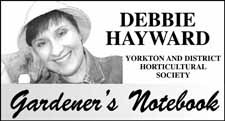My sister recently bought a quinoa cookbook. You've probably heard of quinoa, it's been in gardening news a lot in recent years. We actually tried to grow it a long time ago, but we weren't sure how to use it, so it became more of an ornamental plant in our garden. But today, fellow gardeners, you and I will learn the basics of quinoa together.
First of all, how is it pronounced? It's not as hard as it looks: it is pronounced "keen-wah". This hearty plant originates in the Andes, where it was domesticated almost four thousand years ago. Quinoa likes cooler temperatures and sandy, well-drained soils. It grows in 90 - 125 days. It's not really a grain, but belongs to the goosefoot family, cousins of the spinach and tumbleweed families. Quinoa is grown for the seeds, which are like rice or couscous when they are cooked.
I found a great article by Jamie McLeod at the Farmer's Almanac, and this is part of what she said: "Unlike most plant-based foods, quinoa contains a complete amino acid mix, making it a rich source of protein. It is also a good source of dietary fibre, phosphorous, magnesium, and iron. One of the reasons it has gained in popularity in recent years is that it is gluten-free, so it's ideal for people with wheat allergies of sensitivity." I know that many articles are elevating quinoa to the "super-food" category, so it might be something you want to try. Whether you try to grow quinoa yourself or purchase it as the seeds, be sure to rinse the seeds well before use because they have a bitter coating called saponin. Saponin makes the rinse water look sudsy, so rinse the seeds well before use.
I found an astonishing number of recipes that use quinoa, in everything from soups and stews to desserts. It sounds like the seeds adapt well to the flavors that they are mixed with, making them very versatile.
So there we have it: a crash course in quinoa! It's an exotic plant, but something that has been around for thousands of years: one more gift of the earth!
The next meeting of the Yorkton and District Horticultural Society will be on Wednesday, February 16. Members, please note the new location: the Sunshine Room at SIGN on North Street. Meeting time is 7 p.m., and we'll have a great speaker, so make plans to attend.
The weather around the world has been very distressing, hasn't it. Our hearts have to go out to the poor people in Australia; it will be a monumental task to restore their homes, but what will all that water do to the arable land? I'm sure that it might be decades before some of the landscape recovers. It makes us realize how fragile the earth is. Perhaps that's why gardeners treat their gardens like part of the family!
Till next time, have a good week! And don't forget to try some new fruit or veggie the next time you go shopping!




